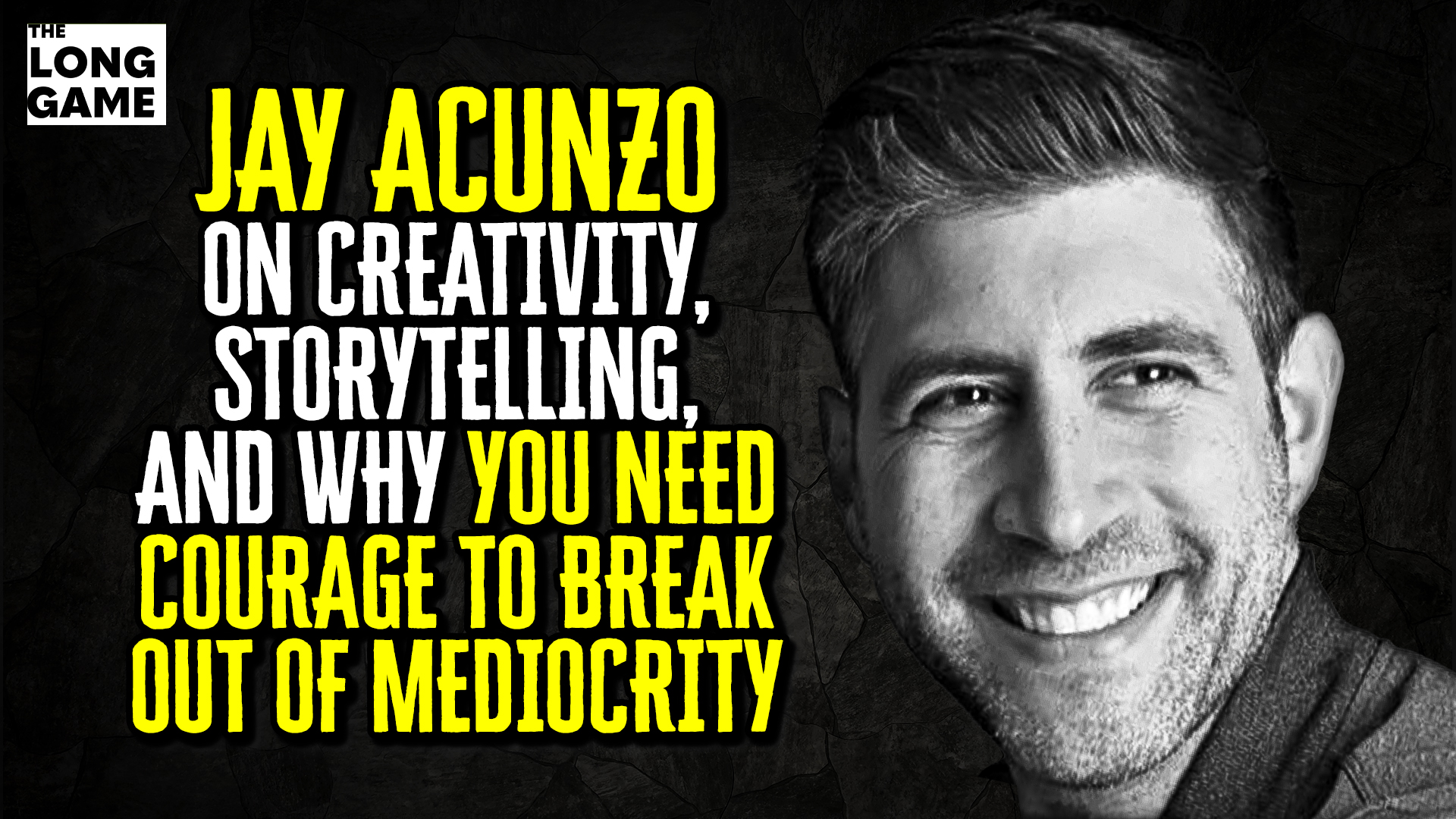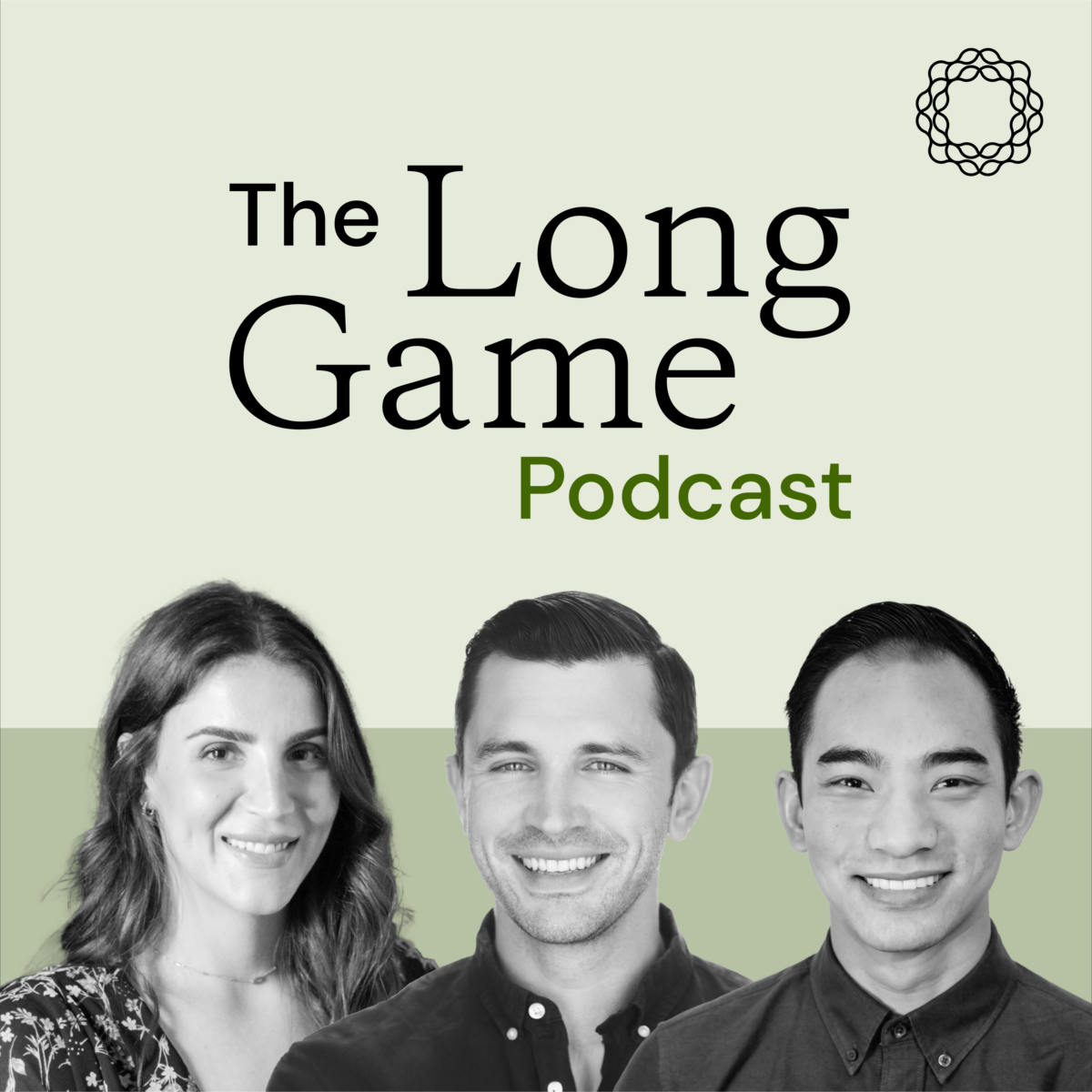
How You — Yes, You — Can Become An Effective Storyteller
Storytelling has existed since the beginning of civilization. But how do you learn to do it better? According to Jay Acunzo of Unthinkable Media, all it takes is conviction and commitment. In this conversation, he tells stories about how to tell better stories — meta, we know.
Topics
- What to learn from Anthony Bourdain
- Have a vision for your content
- The difference between “good” and “effective”
- A story’s purpose
- Here’s the thing about…
- Role of communicator
- The goal of a storyteller
- Integrate mindfulness
- Working more bravely
Show Links
- Check out Unthinkable Media
- Follow Jay Acunzo on LinkedIn or Twitter
- Connect with Omniscient Digital on LinkedIn or Twitter
Listen to the podcast:
Key Takeaways:
What to learn from Anthony Bourdain
03:00
Respect your audience’s ability to synthesize information and make their own meaning.
“It is my grandest aspiration slash delusion. I love the world of work and the content we get about work does not reflect the emotional spectrum that we experience in our work. It’s, a lot of it is trite and routine and it’s the same stuff rehashed everywhere you go, whether it’s a podcast or a newsletter or a blog or social media and on the extremes, then you get stuff that has me totally disillusioned. One extreme. You have well-meaning people that are posting vapid, nothingness, fortune cookie tweets, or self-actualization quotes on Instagram because they wanna be an influencer. And on the other extreme, you have smug looking bros who wanna talk about making millions and how to do it faster. And, they talk about the same six or seven or 10 brands over and over again in the media and. It’s that’s never been my experience of work. And my experience of work has always matched my experience of life. And here you have Bourdain who would walk to a new place, sit with a person in their seemingly mundane day-to-day, which sounds a lot the world of work to me. And he would go deeper and ask simple questions and get profound answers and show an interest. Go on a journey to understand something and shift your perspective and then back away a little bit and give you space to make sense of it. He wouldn’t stuff every detail or every moment full of, his five key takeaways or exactly what he would prescribe you do with this information. He wanted you to synthesize. He had this awesome blend of voice and nuanced gray area storytelling. That’s where he lived. He did not wrap it up in a nice, neat bow every time. And certainly respect for the audience to give you something different every time and not care. If you’d the last episode he’s on record saying this, you might not this one cuz we’re gonna try something brand new. And he didn’t want to give you, the perfect, beautiful sound bite at the end, or the five simple steps to success or understanding based on what you heard. He respected the audience to synthesize their own meaning. And as a result, you got closer and closer, not only to him as a storyteller, but to the meaning. For me, it starts with profound, nuanced stories told from the seemingly day-to-day. And then all the other performative or production things that I mentioned rolled up into what amounts to my storytelling hero.”
Have a vision for your content
09:31
There’s more to marketing than tips, tricks, and hacks.
“Whether you’re a product innovator or visionary or a communicative content story marketer, branding visionary, the difference between a lot of these base level type content or base level type thinkers and the folks worth following, are the folks worth following? They go, where we’re at right now is broken and I have a vision for what might be better and I need to give people not what they want, but what they need. And then we have to figure out how far, how close to where they’re already at. Do we need to go to say, listen, this is what you want. I understand that this is how you’re coming at it, but here’s all the problems with that. Maybe consider this instead and now I’m gonna make the case for this. Through story, through heuristics, through, data, whatever it is my superpower to show you. It’s not how to, it’s how to think, it’s how to see the world, which then shows up in every how to. But a lot of us limit ourselves to it’s gotta be the tips and tricks and cheats and hacks. And cuz the gurus seem to do that and they fly on Twitter, that does not need to be the arbiter nor and I don’t think it should be.”
The difference between “good” and “effective”
11:36
Many storytellers solve for the wrong one.
“There’s a difference between being a good storyteller and an effective storyteller. All storytellers speak with some clarity. And that’s where a good storyteller stops. There’s a wonderful quote from author Kazuo Ishiguro, Nobel Prize winner, who says “stories are about one person saying to another. This is the way it feels to me. Can you understand what I’m saying? Does it also feel this way to you?” Clarity is the first hurdle. A good storyteller uses a sequence of actions; this happened, then this happened. That then creates tension and resolves it. But then this happened. What will happen next? You have questions and you’re hardwired to want answers, you’ll continue to listen. Then that happened. That’s the resolution. For us, we have to be an effective storyteller. We are in the business of action. We’re in the business of ensuring others care. No amount of reach can guarantee that they care. We need to master that in and of itself, it’s its own craft. Go ahead and create all your stuff privately that you want, cuz it benefits you and then eventually you come out publicly and it’ll show up in the work for others too. But remember, the job is not to be a good storyteller. The job is to be an effective storyteller. And while good storytellers can grip us, effective storytellers can move us. And that’s what we need to do. We need to move others. Whether it’s moving their understanding, shifting how they act, taking some action because that’s where our results come from.”
A story’s purpose
17:50
It’s a vehicle that can take your audience to wherever they want to go.
“Stories are wonderful vehicles about a change or about overcoming something about solving a problem. It’s a communication device that uses a sequence of actions that creates and resolves tension. But of course it has to have some meaning and that’s where you get effective.”
Here’s the thing about…
19:48
Use this one phrase to contextualize your stories.
“There’s this useful technique for storytellers to remember, not only to become effective, but also to customize stories everywhere you go. Even if you only have one to tell. The phrase is, “that’s the thing about”. You tell the story and then you arrive at this moment where you’re that’s the thing about goals. We don’t set goals correctly. When it’s time to reach higher or do better work, we’re hurting our own cause, and maybe we should rethink it in this way or that way. Remember that phrase to tip from a good storyteller to an effective storyteller or to customize the same story for different audiences is “that’s the thing about”. It can be a different “thing” or a different insight everywhere you go, depending on who you’re speaking to or what subsection of the audience you’re speaking to and what they need to hear.”
The role of a communicator
26:45
It’s not enough to only build tension — resolve it the right way.
“When we step into the role of communicators, it’s about what are we doing and how as we communicate. No one is gonna ask you to answer a question on a podcast in story. That’s your choice. You gotta decide to do it, that’s the posture of an effective storyteller. Then there’s also the skill of an effective storyteller. You’re not gonna give the sequence of events, even the most gripping sequence that introduces and resolves tension. You’re also gonna ensure there’s some meaning that is extracted.”
The goal of a storyteller
40:33
Inspire reflection in others.
“Once in a while we have to reflect. Cuz if we’re not reflecting on our work and the goal of an effective storyteller is to inspire reflection in others, how do we expect for that to happen. It won’t. And we’re gonna get this banal commodified content day after day that is ineffectual. It is in the name of results that we’re doing this. This is not some woowoo conversation. You’re trying to spark action. This is the path to it. It’s all the little moments add up to do that. It’s not the big stuff.”
Integrate mindfulness
46:44
It costs you nothing and changes your whole perspective.
“Travel get held up as one of these things that inspires you, you go on these grand adventures or see these amazing things in the world and you’re inspired and maybe creative or whatever. I don’t think it’s that you’re staring at the Grand Canyon or the Mona Lisa or a jungle. It’s that you are forced when you are not in the routine, in these daily grooves you’ve made for yourself to be mindful of everything around you. In other words, it is a hack to be more sensitive to the world around you. And that’s what travel does. But we can engineer little moments of that constantly. Frustration is one of those cuz the frustrating moments cause you to break from your mindless flow.”
Working more bravely
51:33
It’s not the absence of fear, it’s proceeding when you’re afraid.
“Bravery is not no fear. It’s proceeding even when you are afraid. That’s what courage, that’s what bravery is. Focus on the real problem. If you have a momentum problem, solve that problem. You’re trying to engineer the best written piece in the world, but you don’t write ever, write anything. Even if you don’t ship it, that’s fine, I wish you would, but write anything. Then, make it better. Or do the next one in better fashion with more confidence with a better handle on your voice. Solve the brilliance problem later. Cause you don’t have a brilliance problem, you have a momentum problem. That’s the idea of working more bravely.”
Get the Field Notes
Weekly learnings from working on B2B content & SEO for dozens of companies.



